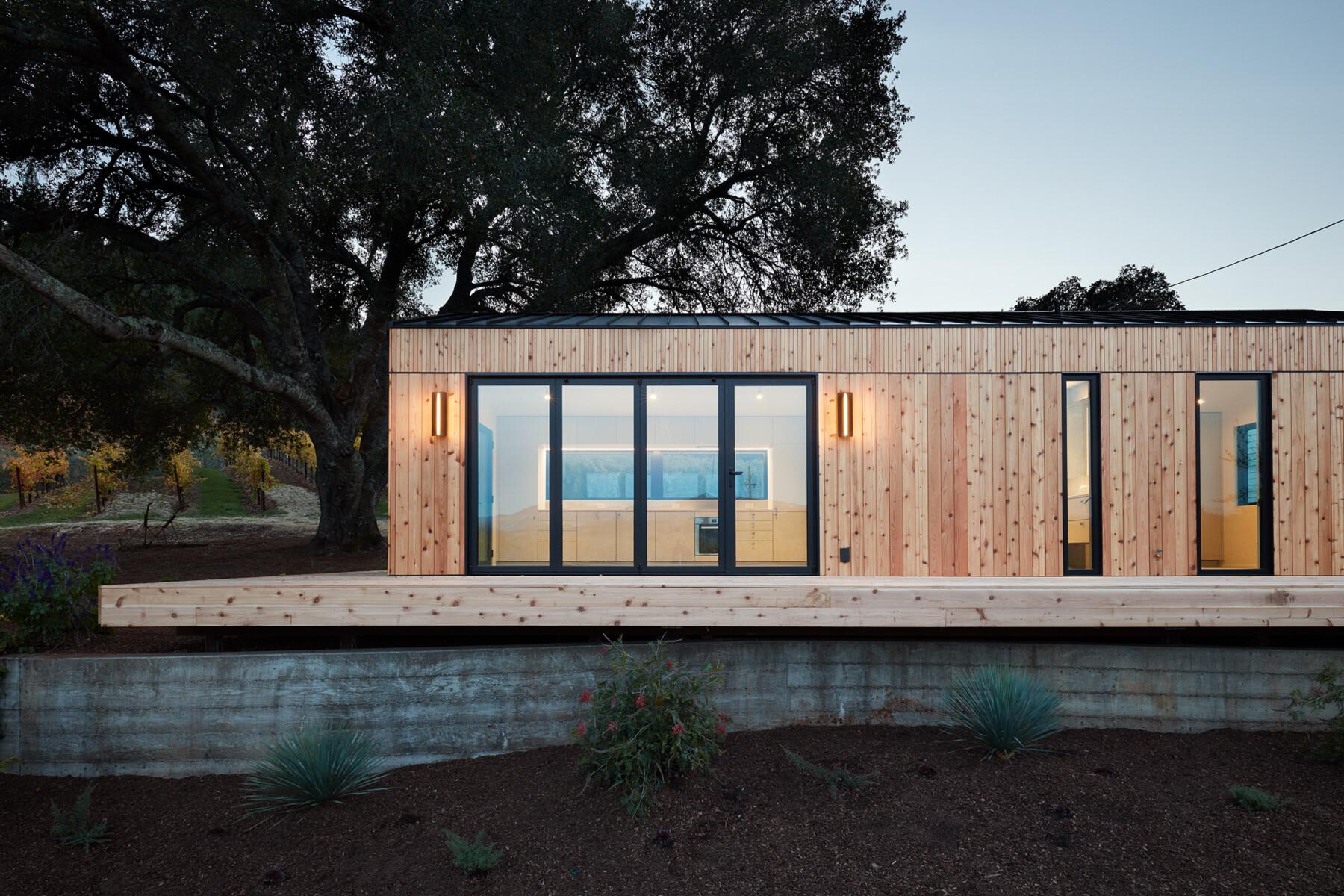
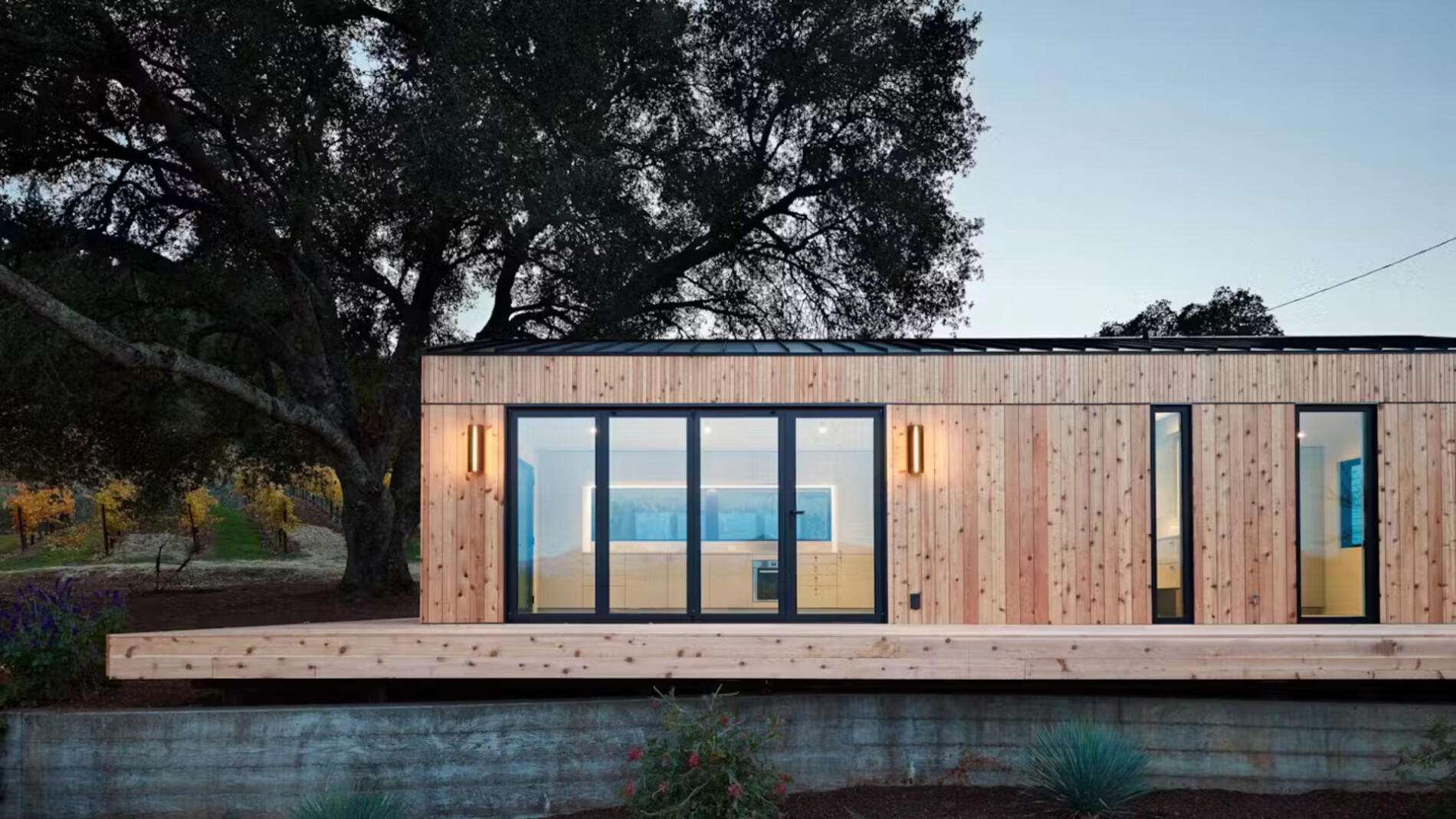
Dwell House exclusively from Abodu, photo courtesy of Abodu
How Abodu is transforming the ADU market with meticulous design & Real Cedar siding.
In an age where housing market pressures mount, innovative solutions like tiny homes, laneway homes, and prefabricated (prefab) homes, also known as accessory dwelling units (ADUs), are increasingly appealing. These alternate residential paradigms are a beacon of hope, offering affordability, sustainability, and convenience. A frontrunner in this burgeoning market is Abodu, a company with an impressive portfolio of flexible designs to choose from including an inspired collaboration with dwell magazine.
“At Abodu, we approach the home as a meticulously designed product that’s simple, uplifting, and full of light,” explains Phi Van Phan, Head of Product for Abodu. They provide a comprehensive solution that encompasses everything from design and permitting to construction, delivery, and installation. Having successfully installed over 200 units to date, Abodu is well-positioned in this growing market.
In today’s building landscape, sustainability is not an afterthought but a defining factor. Even if sustainability wasn’t a pressing concern for clients, it remains crucial for Abodu. As Phan remarks, their buildings far surpass California’s stringent building codes, yielding not just environmental benefits, but also enhancing homeowners’ living quality.
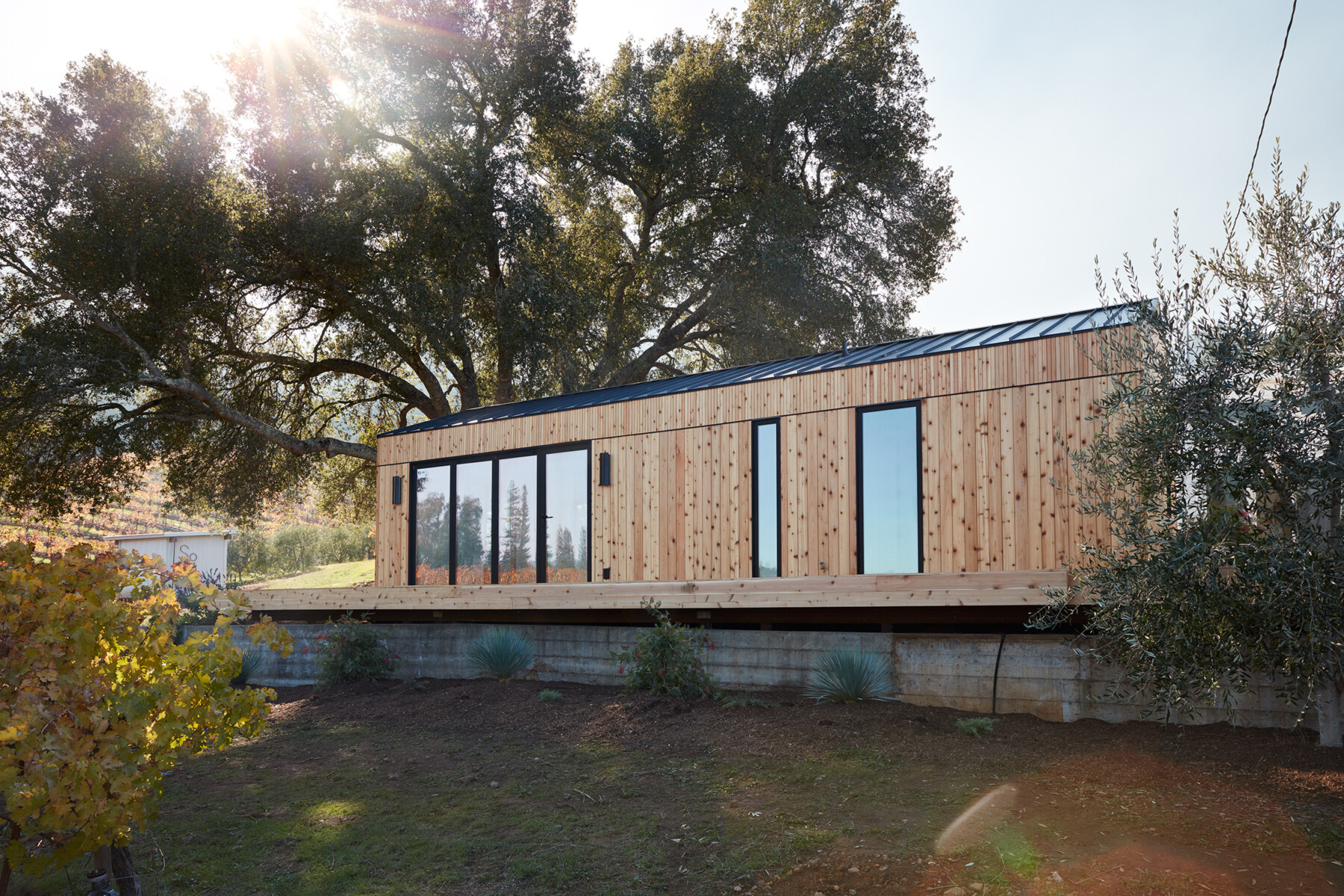
Dwell House exclusively from Abodu, photo courtesy of Abodu
Material of Choice
One of the standout features in their choice of materials is Western Red Cedar siding. This species, native to the regions they serve, brings a distinct charm and uniqueness to their units. Phan professes his admiration for the material, “We love the look of Western Red Cedar. No two boards are alike.”
It also offers their clients an opportunity to customize their home’s exterior, with different staining options or by leaving it untreated to age naturally. As for the environmental impact, Western Red Cedar checks the box. The fact that it is locally sourced and responsibly harvested contributes to a smaller carbon footprint. Phan also acknowledges the historic richness of wood,
“Woodworking is ancient, so there’s an incredible lineage of craftspeople and techniques associated with it. This lineage inspires us to reinterpret the tradition in a modern context.”
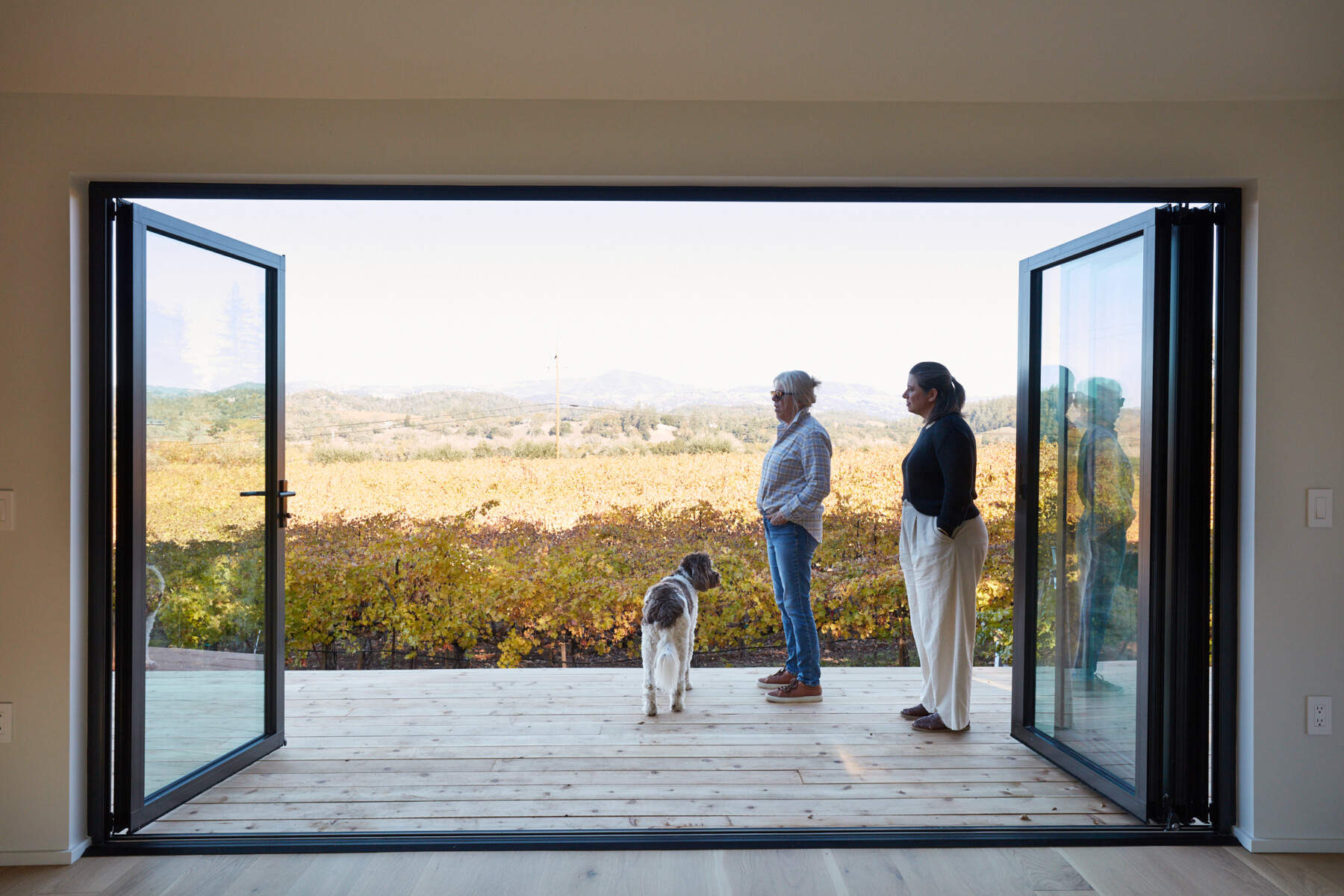
Dwell House exclusively from Abodu, photo courtesy of Abodu
Wood’s Warm Reception
Feedback from clients is testament to the success of their choices. Clients are enamored with their cedar-clad Abodu, its natural appearance seamlessly blending into leafy backyards and verdant landscapes.
In advising environmentally-conscious clients, Phan points out, “Wood products like Western Red Cedar are incredibly durable and have low embodied energy versus most alternative siding products.” He highlights the material’s ageless aesthetic appeal as it grays gracefully over time, imbuing it with a timeless charm.
In the context of ADUs, where the size of properties is inherently limited, aesthetic considerations carry weight. Phi Van Phan suggests that Western Red Cedar offers something special, stating, “In situations where the ADU is positioned close to the main home, having a cladding material that is pleasing to the touch and beautiful to look at becomes essential. This is where well-executed cedar siding can shine.”
As the housing narrative continues to evolve in the 21st century, pioneering companies like Abodu are changing the script, offering sustainable, aesthetically pleasing solutions. Western Red Cedar, with its beauty, durability, and sustainability, is playing a pivotal role in this transformation.
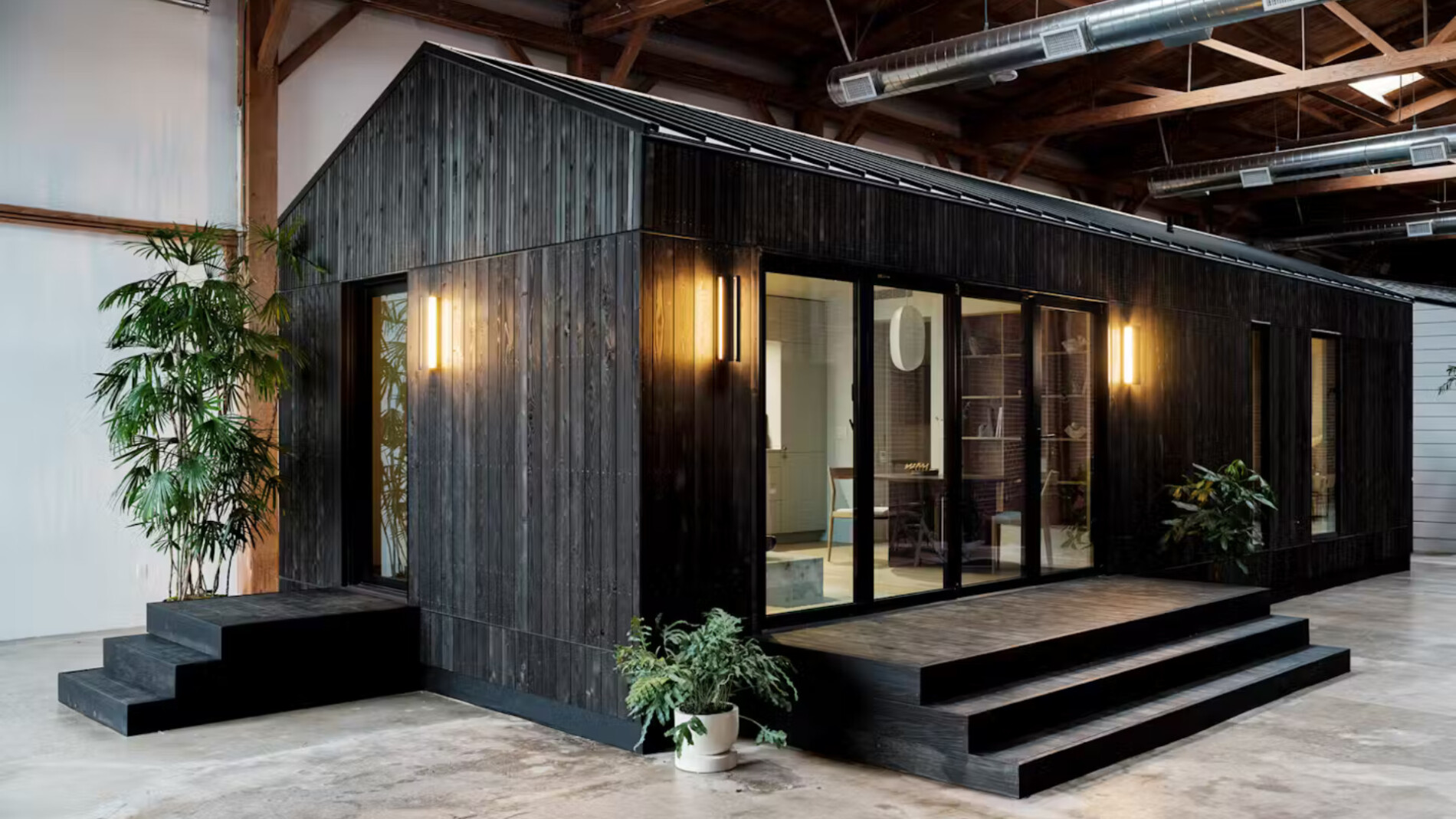
Dwell House exclusively from Abodu, photo courtesy of Abodu